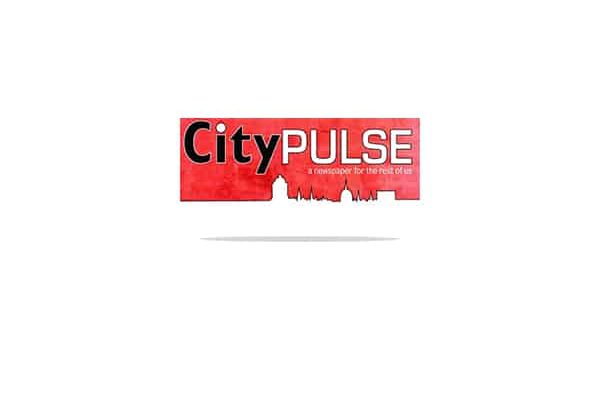[originally published May 2023; updated January 2024] In this article, our Delaware cannabis consultants provide you with a guide on how to win a license. We’ve already won medical cannabis business licenses in Delaware, taking 2nd place in the last application round! We are well-prepared to help you win one of the first adult-use licenses.
Delaware is the most recent state to legalize adult-use cannabis, making it the 22nd U.S. State to do so. A limited number of cannabis business licenses will be issued via a competitive scoring process.
The first part of this article summarizes the adult-use cannabis program, including a timeline, types of licenses, and the application process. Thereafter, you will find the step-by-step guide on winning a license from our Delaware cannabis business consultants.
We encourage you to read this article in its entirety. If at any time you would like to speak with our Delaware marijuana consultants on the phone, fill out a contact form, and we’ll be in touch shortly.
Delaware Cannabis Consultants
Laws and Regulations
To fully understand the adult-use cannabis program in Delaware, read HB 2 (aka HB 305, Delaware Marijuana Control Act). You’ll find everything from operational requirements, taxation, the license application process, and more. But keep reading this article because our Delaware cannabis consultants summarize the key pieces of information from the bill relevant to applicants.
Along the same lines, you should be aware that the following government agencies govern Delaware’s adult-use cannabis program:
- Office of the Marijuana Commissioner, within the Division of Alcohol & Tobacco Enforcement (DATE), Department of Safety & Homeland Security (DSHS); and
- Department of Health and Social Services (DHSS), which will work in partnership with the DATE to implement the Marijuana Control Act while ensuring that the needs of Delawarean medical marijuana patients in the Medical Marijuana Program are impacted positively by the opening of adult-use retail.
Now that you know where to find the laws, let’s discuss the types of cannabis business licenses that Delaware will issue.
Types of Licenses and Authorized Use
Delaware will issue four different types of adult-use cannabis business licenses, for an initial total of 125 licenses issued (if enough qualified applicants). These will be spread among three different pools of applicant types for the licenses: Open, Social Equity, and Microbusiness applicants.
“Open” licenses are available for anyone to apply. On the other hand, micro-business and social equity licenses are limited to certain individuals and groups. Our Delaware cannabis consultants summarize the criteria for each of the license types below.
Cultivation Facility License
The Cultivation License allows the licensee to grow leaf marijuana for both retail sale and use in manufacturing. The Commissioner will issue up to 60 total cultivation facility licenses to qualified applicants:
- 20 Open licenses (non-refundable application fee of $5,000),
- 20 Social Equity licenses, and
- 10 Microbusiness Cultivation Facility License
Product Manufacturing Facility License
The Product Manufacturing Facility licensee is allowed to extract leaf marijuana into concentrates and manufacture products made from their concentrates. The Commissioner will issue up to 30 total product manufacturing licenses to qualified applicants:
- 10 Open (non-refundable application fee of $5,000)
- 10 Social Equity, and
- 10 Microbusiness Product Manufacturing Facility Licenses
Testing Facility License
The Testing Facility Licensee is authorized to test leaf marijuana, marijuana concentrates, and marijuana products, as defined by HB2’s seed-to-sale tracking and consumer protection provisions, which mandate uncontaminated, unadulterated, and high-quality leaf marijuana and products.
The license authorizes qualified applicants to test such products for compliance and safety before available for retail, and the Commissioner will issue up to 5 testing facility licenses:
- 3 Open (non-refundable application fee of $5,000), and
- 2 Social Equity licenses.
Retail Marijuana Store License
Qualifying retail licensees are authorized to sell marijuana and its products to adult-use consumers, while strictly adhering to all established regulations. The Commissioner will issue up to 30 retail adult-use marijuana licenses:
- 15 Open (non-refundable application fee of $5,000), and
- 15 Social Equity licenses
Among other requirements, retail store licensees must ensure that adult-use cannabis consumers who purchase leaf marijuana and products are provided the following:
- Required educational information regarding health risks of consumption and dosage; and
- Child-safe packaging, as well as pet-safe packaging, to help prevent accidental consumption.
Licensees must also collect a 15% POS retail tax and remit to the Delaware Department of Revenue.
Next, we’ll define and summarize the criteria for applicants for Open, Social Equity, and Microbusiness applicants.
Open Licenses
No eligibility restrictions for applying. A non-refundable application fee of $5,000 will be due upon submission of your application.
Microbusiness Licenses for Cultivation and Manufacturing
Firstly, the definition of a cannabis microbusiness is the size of the canopy and product produced. To qualify for a Delaware cannabis microbusiness license, you must meet all of the following criteria:
- 51% owned and controlled by 1 or more individuals who have resided in Delaware for at least 5 of the preceding 10 years;
- Employ no more than 10 employees;
- May not operate a facility with a cannabis plant grow canopy area greater than 2,500 square feet.
- May not possess more than 1,000 marijuana plants each month.
Social Equity Licenses
On the other hand, you will qualify for a social equity license if you meet one of the following criteria:
- An applicant for any type of license with at least 51% ownership and control by 1 or more individuals who have resided for at least 5 of the preceding 10 years in a disproportionately impacted area.
- An applicant for any type of license with at least 51% ownership and control by 1 or more individuals who meet one of the following criteria:
- Was convicted of or adjudicated delinquent for any marijuana-related offense except any of the following:
- Delivery to a minor.
- Any marijuana offense with a Tier 3 quantity of marijuana as defined in § 4751(c) of Title 16.
- The functional equivalent of the offenses described BOVE under the laws of the United States, any state or territory of the United States, or any other country.
- Is married to or the child of a person who was convicted of or adjudicated delinquent for any marijuana-related offense.
- Was convicted of or adjudicated delinquent for any marijuana-related offense except any of the following:
The next section focuses on the timeline for issuing licenses.
Timeline
On April 26, 2023, the Delaware Marijuana Control Act became law. Therefore, Delaware must begin accepting adult-use cultivation license applications beginning May 2024, and as of July 1st, 2024, the regulations must be adopted to administer the licensing of recreational marijuana businesses in Delaware. Afterwards, within one month, they begin accepting marijuana business license applications!
So, get started now, and engage our Delaware cannabis consultants to help you submit your application successfully at the opening date. We summarize the deadlines below.
- August 1, 2024: The Commissioner begins accepting applications for all licenses.
- September 1, 2024: The Commissioner will begin issuing licenses of any and all types of these adult-use licenses.
- October 1, 2024: The Commissioner will issue 60 Cultivation Facility Licenses.
- November 1, 2024: The Commissioner will issue 30 Product Manufacturing Licenses.
- February 1, 2025: The Commissioner will issue 30 Retail Licenses and 5 Testing Licenses.
Application Process: Summary from our Delaware Cannabis Consultants
Delaware will issue licenses based on a competitive, merit-based scoring system. In other words, your application will be scored and ranked against other applicants. You will compete for the limited number of licenses available, and the highest-scoring applications will win a Delaware cannabis business license.
For example, as part of your application, you must submit the following;
- Business plan, including an annual budget and pro forma financial statement
- The experience, training, and expertise of the applicant and managing officers.
- Plans for safety, security, and the prevention of diversion.
- Plans for operations, training, and staffing, including all of the following:
- A social responsibility plan outlining diversity goals, including plans to recruit and hire people of color, women, and veterans and to support their ownership and promotion within the organization, as well as the percentage of employees it plans to hire from within the respective city or region of the State.
- A plan to provide a safe, healthy, and economically beneficial working environment with fair scheduling practices, family-supporting wages, and benefits for its employees.
- Any criminal, civil, or regulatory history encountered by other entities the applicant and managing officers have previously controlled or managed.
- The suitability of the proposed location for the facilities.
- Any other criteria deemed appropriate by the Commissioner.
- An attestation signed by a bona fide labor organization stating that the applicant has entered into a labor peace agreement with such bona fide labor organization.
- An environment and sustainability plan, including efforts it will take to minimize the environmental impact, and resources needs of its facilities and other business operations, such as plans to minimize water usage, employ organic cultivation methods, and adoption of other sustainable business practices (for cultivation and manufacturing applicants only).
- Procedures for tracking marijuana from seed to sale.
- And more.
Microbusiness and Social Equity Applicants
Microbusiness and social equity applicants will have a unique application process. While they are required to submit the above items, these applicants will apply through a conditional license process.
Essentially the conditional license application is a two-step process:
- Apply to receive a conditional license;
- If awarded a conditional license, you’ll have 180 days to identify a property.
On the other hand, “open” license applicants (i.e., not microbusiness or social equity) will skip the conditional phase.
Seems like a lot? Keep reading for our Delaware cannabis consultant’s guide on how to win a license. But first, let’s discuss the fees you must pay to apply for and receive a license.
Fees (Application and License Fees)
You must pay two types of fees:
- non-refundable application fee; and
- a license fee specific to your license type.
You must pay the application fee to apply. On the other hand, the license fee is due only if you are awarded a license.
Application Fee
Below are the required application fees:
- $1,000 for social equity applicants
- $5,000 for standard applicants
License Fee
The license fee rates for the various Delaware adult-use cannabis business licenses are summarized below:
- $5,000 non-refundable fee
- Retail License Fee – $10,000 biennially
- Testing License Fee – $10,000 biennially
- Cultivation License Fee – $2,500 – $10,000 biennially (based on plant grow canopy area)
- Product Manufacturing License Fee – $10,000 biennially
Social equity applicants will only pay 60% of the license fees accordingly (i.e., a 40% discount).
At this point, our Delaware cannabis consulting firm has summarized the license application process. Now let’s move on to our guide for how to put together a competitive application. We took second place in the last application round!
Step-by-Step Guide from our Delaware Cannabis Consultants:
How to Win a Business License
Step 1: Read the Laws and Regulations
Firstly, our cannabis business consultants in Delaware suggest you begin by reading the laws and rules of the adult-use cannabis program, as outlined above. It’s important to understand the rules of the competition if you hope to compete effectively.
Step 2: Choose a License Type
As your second step, explore the various license types. Each license allows you to conduct specific activities. For instance, if you want to grow cannabis, a cultivation license makes sense. On the other hand, if you want to sell cannabis and products to end consumers, you will need a retail license.
If you’re unable to read the laws or decide on a license type, then it might be a good idea to bring in some professional help. In either case, we suggest, as the third step, to engage a Delaware cannabis consultant to help you with your application.
Step 3: Engage a Delaware Cannabis Consultant
We understand how difficult it can be to read through hundreds of pages of laws while trying to create a business simultaneously. That’s why we suggest you engage a Delaware cannabis business consultant to assist you. Our cannabis consultants will coach you every step of the way and manage your application for you from start to finish.
We have one of the highest success rates in the industry at winning cannabis business licenses (+91%). We’ve already competed for and won medical cannabis business licenses in Delaware, including 2nd place in the last round! So our Delaware cannabis consultants are experts in the market and can help you outcompete the competition.
Step 4: Form a Business Entity
Next, form a business entity for your application. Your legal entity will allow you to enter into agreements and assemble the required formation documents as part of the application.
Step 5: Develop a Business Plan
Once you’ve formed your entity, you should begin developing your cannabis business plan. A strong business plan will help you analyze the market opportunity, costs, and more. Additionally, you can use your business plan to recruit talent and raise capital.
Step 6: Build a Team
Next, your Delaware cannabis business license application will be scored on your team’s expertise and qualifications. As such, you should build a team that shows the regulators that you are the best candidate to receive and operate the license. Reach out for our talent acquisition services for more information.
Step 7: Raise Capital with the help of our Delaware Cannabis Consultants
It’s never too early to begin raising capital. The process takes time and is often the largest hurdle for cannabis entrepreneurs. Depending on your chosen license type, the investment required to start your Delaware cannabis business will vary. In fact, pursuing the license alone is a costly endeavor, as you’ll incur costs from attorneys, real estate, architects, consultants, and more. Reach out to get an estimate on the average investment required to start cannabis businesses.
Step 8: Choose a location
With some capital in hand, it’s now time for you to begin securing a location. You should ensure that your location complies with all state and local regulations, such as distance requirements and correct zoning.
Remember, social equity and microbusiness applicants do not need to secure a property for their conditional license application. If awarded a conditional license, microbusinesses and social equity applicants will have 180 days to identify a location.
Step 9: Garner Local Support
Once you’ve secured a property, the next step is to build local support and approval. The state will want to know that your chosen municipality approves of you operating a cannabis business in their jurisdiction.
Step 10: Write and Submit Your Application
Lastly, the final step is for you to write and submit your Delaware cannabis business license application. Here is where you encapsulate all you’ve done to date and your plans. You must submit dozens of technical narratives demonstrating your ability to operate the adult-use cannabis business in Delaware, as described above in the Application Process section above.
You’ll be competing against multi-state operators, lawyers, and other consultants on your license application. Don’t go at this alone. Work with our Delaware cannabis consulting firm to put forth your strongest application. We always aim for the top/perfect score and have a track record to prove it.
Conclusions from our Delaware Cannabis Consultants
From business planning to talent acquisition to application writing, our cannabis business consultants in Delaware can help you prepare an application that will increase your chances of winning a license. We find that winning applicants typically start on their application 12 – 18 months before they are due.
Fill out our contact form today, and our Delaware cannabis consultants will reach out to discuss a winning strategy.
APPENDIX | Additional Information
Transferring Licenses
In short, yes, you can transfer (i.e., buy and sell) Delaware cannabis business licenses. However, the Commissioner must approve the transfer, and you must pay a fee.
In the case of microbusiness and social equity licenses, you can only transfer these licenses to individuals who meet the microbusiness or social equity criteria.
The fee you must pay to transfer a license is $5,000 or 15% of the transaction, whichever is greater. If you want to buy or sell a cannabis business license, speak with one of our cannabis M&A advisors. Additionally, check out our cannabis businesses for sale.








